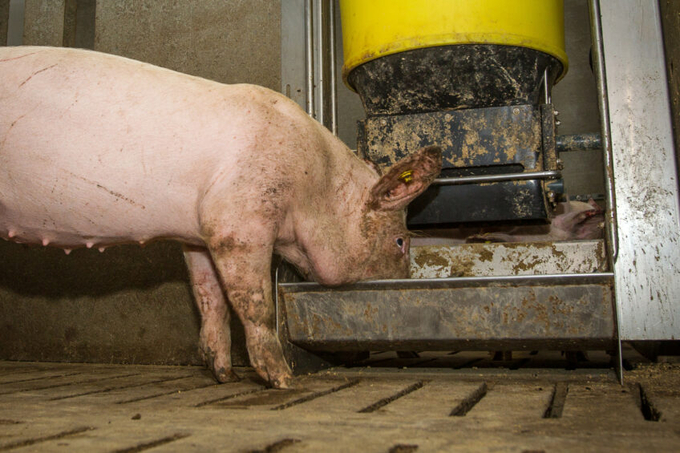November 27, 2025 | 20:31 GMT +7
November 27, 2025 | 20:31 GMT +7
Hotline: 0913.378.918
November 27, 2025 | 20:31 GMT +7
Hotline: 0913.378.918

Photo: Peter Roek
Dr Sandra Blome, scientist at the Friedrich-Loeffler-Institut (FLI) in Germany, is project coordinator of an international research project. In a press release she commented, “Even after adding large amounts of the infectious virus to various feed and bedding materials, no infectious virus was detectable after a short time.”
The project, initiated by the European Food Safety Authority (EFSA), aimed to delve deeper into the behaviour of ASF virus. As the virus is stable in the environment, it has long been assumed that it can also be transmitted via feed, water and other materials. In Germany, the Federal Institute for Risk Assessment (BfR) as well as the FLI participated. The research publication was published in EFSA Supporting Publications. Dr Blome continued to say, “Only in cold-stored fodder beet and potatoes was infectious virus still found in some samples, even after a longer storage period. This is probably due to the fact that ASF viruses are particularly stable in cold and humid environments.”
Due to the lack of empirical data, the FLI, together with the Swedish Veterinary Agency (SVA) and the BfR, worked on the EFSA-funded project (start 2022) to fill the existing gaps in knowledge. The aim was to investigate the stability of ASF viruses on feed, bedding and mechanical vectors under practical storage conditions. For this purpose, 14 relevant agricultural feed and bedding materials were used: grass, grass silage, hay, bark, peat, wood shavings, maize silage, rape, barley, wheat, oats, straw, potatoes and fodder beet.
All materials were contaminated with the ASF virus and stored at 5 different ambient temperatures (-20°C, 4°C, 10°C, 20°C and 37°C) for up to 9 months. The samples were analysed at different times for infectious virus and virus genome residues. The researchers also looked at the possible role of 3 different species of blood-sucking arthropods (arthropods such as seiners) to find out how long the arthropods studied could harbour the virus genome and infectious virus after ingesting infectious blood.
(PP)

(VAN) A new study reveals how the simultaneous effects of ocean acidification, salinity and loss of oxygen are making the world more fragile.

(VAN) Hopes are growing that the creation of the first 3D turkey gut model could be a turning point in the battle against the virulent blackhead disease.

(VAN) Tyson, America’s biggest meat supplier, plans to shutter one of its largest beef processing plants as the industry continues to struggle with low cattle supplies and political pressure from Washington.

(VAN) New FAO study shows how digital solutions are empowering farmers and fishers to prevent losses and build resilient agrifood systems.

(VAN) Brazil's COP30 presidency pushed through a compromise climate deal on Saturday that would boost finance for poor nations coping with global warming but that omitted any mention of the fossil fuels driving it.

(VAN) Poultry farmers in the UK have been warned that they could face one of the worst winters yet for bird flu.

(VAN) Prices of main-crop paddy have risen sharply, with jasmine rice hitting 16,100 baht per tonne — the highest level in years.